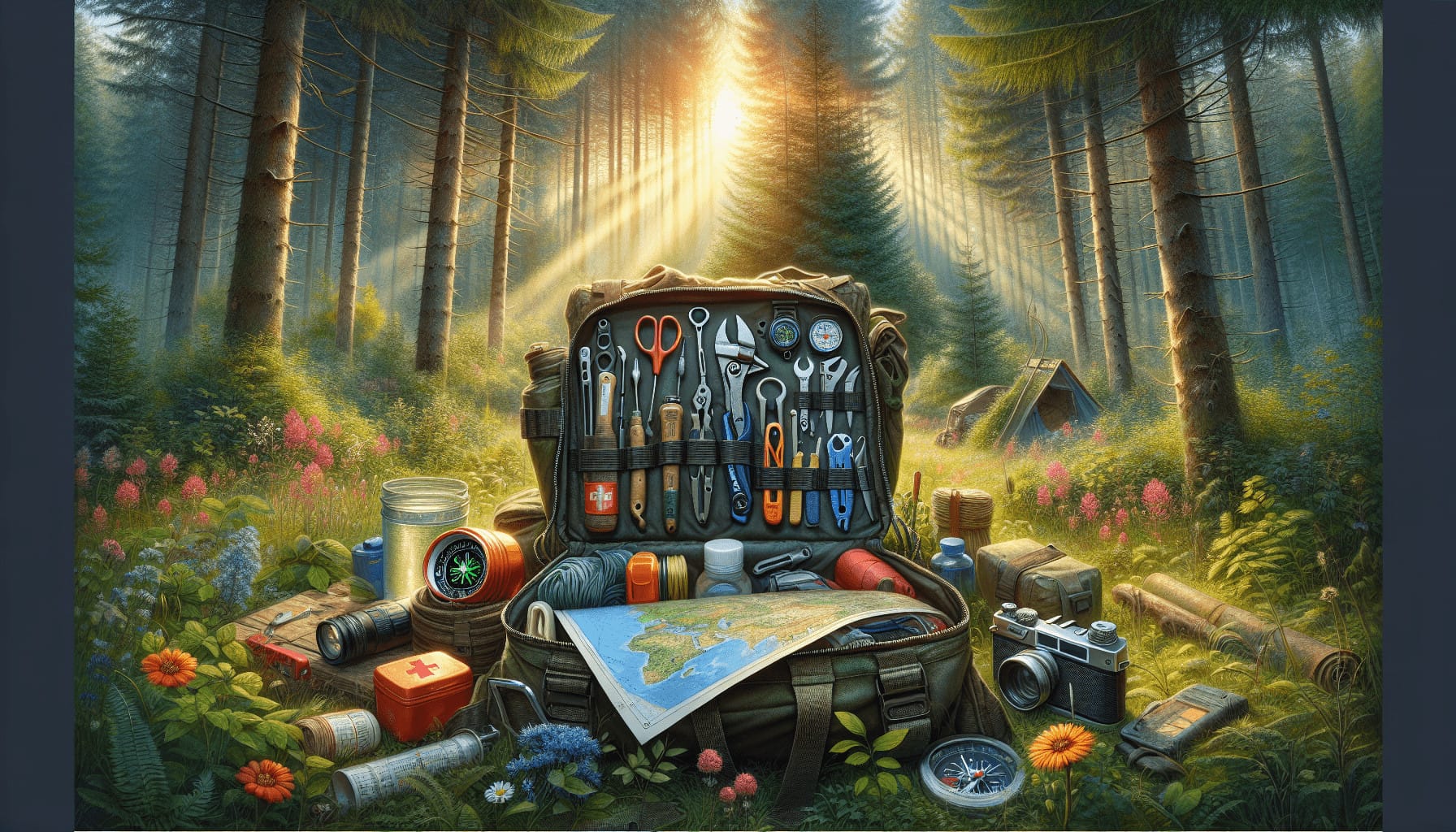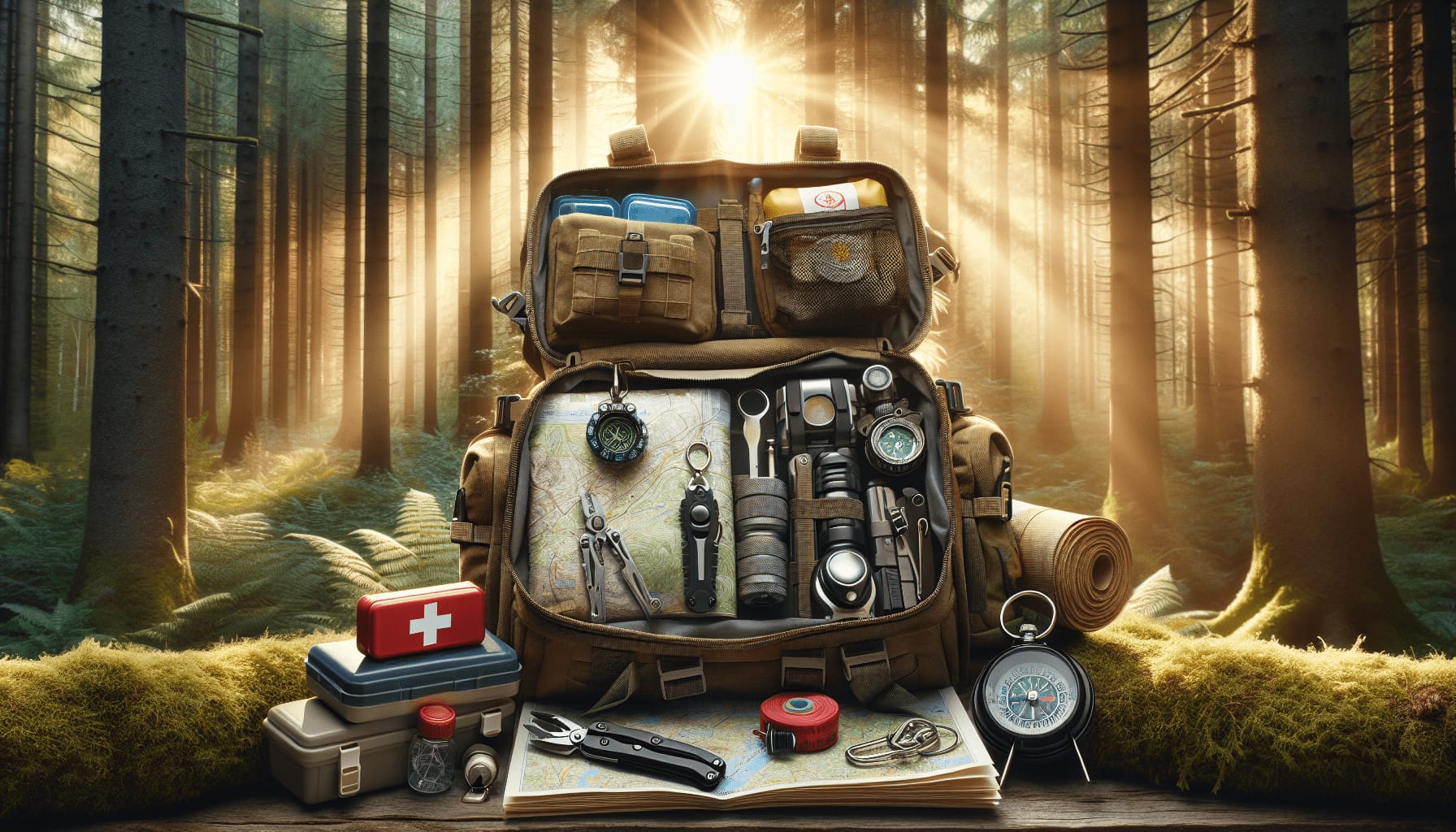Have you ever wondered how prepared you really are for an unexpected situation while enjoying an outdoor adventure? Whether you’re hiking up rugged mountains, exploring dense forests, or setting sail on vast lakes, being ready for emergencies is more than just carrying a first-aid kit. It’s about having the knowledge, skills, and mindset to handle unexpected events confidently. Let’s chat about what it takes to be prepared and stay safe during your outdoor explorations.
Understanding the Importance of Emergency Preparedness
First, let’s talk about why emergency preparedness is crucial for outdoor adventurers. Nature is unpredictable, and even the most experienced adventurers can face unexpected challenges. Whether it’s a sudden change in weather, getting lost, or encountering an injury, being prepared can make a significant difference between a close call and a disaster.
Preparation involves more than just thinking about possible scenarios. You need to have a plan in place, know how to use your gear properly, and understand the environment you’re venturing into. This approach ensures that you can react calmly and effectively when things don’t go as planned.
Tools and Equipment Essentials
First-Aid Kit
Think of a well-stocked first-aid kit as your adventure buddy that you’ll always want by your side. It should include basics like bandages, antiseptic wipes, pain relievers, and any personal medications. It’s not just about having the kit but also knowing how to use everything in it. It’s definitely worth taking a first-aid course to brush up on essential skills.
Navigation Tools
While GPS devices and smartphones are incredibly handy, don’t underestimate the power of a compass and a physical map. Technology can fail due to dead batteries or lack of signal, so knowing how to read a map and use a compass is invaluable. You might even find navigation practice quite fun as part of your adventure preparation.
Shelter and Warmth
Unexpected overnight stays can happen, so having gear like an emergency bivvy bag or space blanket can be a lifesaver. They’re lightweight yet effective at providing warmth and protection against the elements. Even during a day trip, these should fit snugly into your backpack’s emergency section.
Food and Water Supplies
Carrying high-energy snacks like nuts, jerky, or granola bars can provide the necessary boost when you’re in a pinch. Concerning water, portable water filters or purification tablets are a must-have. They ensure you have safe drinking water should you find yourself stranded without an immediate supply.
Communication Devices
A fully charged mobile phone is great, but for more remote regions, a satellite phone or a personal locator beacon (PLB) can be crucial. These devices ensure you can communicate or send a distress signal if you need urgent help.

Building Your Skill Set
Preparing is also about building skills. The more capable you are, the more confident you’ll feel when facing unknowns during your journey. Let’s go over some key skills that can boost your preparedness.
Basic First Aid and CPR
Knowing how to administer first aid and CPR can be life-saving, not just for you but for your traveling companions. Emergency scenarios rarely give you the option to wait for EMS, so it’s empowering to know you can take immediate action.
Navigation Skills
As mentioned earlier, learning how to navigate using a compass and a map isn’t just an old-school trick. It’s a crucial skill that every outdoor enthusiast should have. Try planning mini-expeditions where you practice these skills.
Wilderness Survival Skills
This includes knowing how to start a fire, build a shelter, and find food and water in the wilderness. These skills can be honed over time and are incredibly empowering. They ensure that even in dire situations, you can rely on your wits and resourcefulness.
Decision-Making and Risk Assessment
Learning to assess risks and make sound decisions is perhaps the most critical skill. This involves understanding environmental hazards (like evaluating the stability of snowfall if you’re skiing or snowboarding) and being able to gauge your physical and mental limits accurately.
Pre-Trip Planning and Research
Research is your best friend before heading out. Taking the time to understand your destination can prevent many emergency situations before they arise.
Understanding the Terrain and Climate
Different environments present different challenges. Study maps, read guidebooks, and understand the climate patterns of your destination. This knowledge helps you pack appropriately and anticipate possible challenges.
Checking Weather Conditions
Weather can change rapidly in outdoor settings, and forecasting technology is constantly improving. Be sure to check weather updates until you begin your journey and prepare for sudden changes.
Informing Someone of Your Plans
Always let someone know where you’re going and when you expect to return. This step provides peace of mind and ensures that if something goes wrong, someone can alert authorities to initiate a search and rescue.

Mindset and Emotional Preparedness
Emergencies can evoke panic, and how you manage those feelings is crucial. Here’s how you can cultivate a calm mindset.
Staying Calm Under Pressure
Panic can worsen any situation, so practicing mindfulness and relaxation techniques can help keep your mind clear during crises. Breathing exercises are a practical tool to rein in your nerves.
Practicing Situational Awareness
Being aware of your surroundings means continuously evaluating what’s happening around you. This vigilance can alert you to potential dangers before they become imminent threats.
Positive Attitude and Problem-Solving
Adopting a proactive and positive attitude helps in tackling challenges effectively. Being solution-oriented rather than focusing on the problem itself enables quicker and more effective responses.
Emergency Response Scenarios
Thinking through potential scenarios and how you’d handle them can improve your preparedness. Here’s what you might consider:
Lost or Separated from Group
If you find yourself lost, resist the urge to keep moving. It’s often better to stay put unless you have a clear, safe path. Signal for help using whatever means you have and stay visible.
| Scenario | Response |
|---|---|
| Lost | Stay put, use a whistle, and create visible signals. |
| Separated | Assess location, establish landmarks, and retrace steps. |
Unexpected Weather Changes
Sudden storms or cold snaps can be dangerous. Find or create shelter from the elements as soon as possible, keeping dry and warm.
Injury or Illness
Stay calm, assess the severity, and use your first-aid knowledge. If possible, contact emergency services or send someone to get help.
Post-Emergency Actions
Once the immediate emergency is dealt with, knowing what to do next is important.
Assessing the Situation
Evaluate any further threats or needs such as supplies or warmth. Determine if you can safely move towards help or if staying put is best.
Communication and Documentation
If possible, document the scene for insurance or rescue team reports, and communicate any important information to authorities once they arrive.
Continuous Learning and Improvement
Finally, always look to improve your skills and knowledge.
Participate in Workshops or Courses
Taking part in wilderness survival workshops, first-aid courses, or other relevant training can build your confidence and preparedness level.
Reflection and Lessons Learned
After any trip, reflect on what went well and what could be improved. This insight helps you prepare better for next time.
Preparing for emergencies as an outdoor adventurer encompasses having the right gear, skills, mental preparedness, and a great deal of situational awareness. It’s about being adaptable, resourceful, and always ready for whatever nature throws your way. Keep practicing, learning, and adventuring safely out there!
